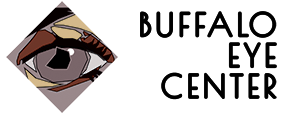Comprehensive Eye Care Treatments
for Kenmore, NY & the Surrounding Areas
At the Buffalo Eye Center, we provide comprehensive eye care treatments and services for our patients throughout Buffalo, NY; Amherst, NY; Kenmore, NY; North Tonawanda, NY; Tonawanda, NY; Cheektowaga, NY; Williamsville, NY; Grand Island, NY; Orchard Park, NY; West Seneca, NY; Niagara Falls, NY; Lockport, NY; Lancaster, NY; Clarence, NY; and the surrounding WNY areas. Our eye doctors can expertly diagnose your eye condition and provide the most effective treatment options so you can see and feel better.
From annual eye exams and simple conditions to more complex problems that require surgery, such as cataracts, glaucoma, and macular degeneration treatment, we have the most advanced technology and experienced staff to ensure healthier eyes and improved vision for all our patients.
Contact our ophthalmologist office today to discuss your eye care needs and schedule an appointment! Browse our comprehensive eye care treatments and surgery options on this page.
Cataracts occur most commonly in people ages 40 and older. The problem is hard to detect at first, having little effect on your vision. However, you might eventually notice your vision is blurred. Patients with cataracts are more sensitive to lights at night or the glare from the sun. They also might see faded colors or have double vision. There are different types of cataracts, and our doctors will recommend the right treatment for your specific condition.
We offer both standard cataract surgery and laser cataract surgery. The Alcon Femtosecond LenSx® laser offers blade-free, refractive cataract surgery. The laser makes precise incisions that used to be made by hand.
Premium lens implants can offer more choices in your visual outcome. The ReSTOR® Multifocal lens implant allows for correction of distance, intermediate and near vision, while toric IOL lens implants correct vision and astigmatism issues
Dry eyes can be caused by aging, side effects of certain drugs, diseases that limit your ability to make tears, and other factors. Having dry eyes means that your tear system is compromised by a lack of sufficient lubrication. If your eyes feel gritty, dry, or itchy, or they’re sensitive to light or your vision is blurry, call us. Tears are essential lubrication for your eyes, and lack of lubrication can cause inflammation on the surface of your eyes, which can eventually lead to pain, a corneal ulcer, or scars on your cornea.
The Buffalo Eye Center offers TearLab® tear testing. This helps our doctors offer the best treatment options for dry eye symptoms. We also offer tranquileyes®products to help bring natural and effective relief for red, dry eyes. These dry eye treatments can help reduce inflammation of the meibomian glands, which make the lipid, or oily, part of tears that help slow evaporation and keep the tears stable.
Glaucoma is a group of diseases that cause damage to the eye’s optic nerve, which can result in loss of vision or even blindness. It is the leading cause of blindness in the United States.
To diagnose glaucoma, our ophthalmologists measure the pressure in your eyes, examine the optic nerves, and test your peripheral vision. Early detection and treatment are vital to preventing serious vision loss.
Here at the Buffalo Eye Center, we offer glaucoma treatment options. From medications to laser procedures, we can help you manage your glaucoma issues.
Diabetic retinopathy is a potentially serious complication of diabetes that damages the retina. It affects over half of those diagnosed with diabetes. Though there are no symptoms of this condition in the early stages, it can progress over time and lead to vision loss. With routine dilated eye examinations and early treatment, most of those with a diabetic retinal disease can be treated.
Although there is no cure for age-related macular degeneration, treatment may slow down the disease and may even prevent complete vision loss. This disease affects your central vision and is a common cause of vision loss in people over the age of 60.
There are two types of macular degeneration: dry AMD and wet AMD. Dry AMD occurs when tissue in the macula deteriorates. Specific vitamins have proven to slow the process for most patients. On the other hand, wet AMD occurs when abnormal blood vessels grow in the macula. It is often treated with injections or sometimes a laser procedure.
The damage caused by macular degeneration can’t be reversed. However, early detection and treatment may help reduce the extent of vision loss.
When to See a General Ophthalmologist
If you are experiencing chronic or severe vision symptoms or signs of eye conditions, you should schedule an appointment with an ophthalmologist. Some of these signs include:
- A serious eye injury
- Bulging eyes
- Reduced, distorted, blocked, or double vision
- Excessive tearing
- Loss of peripheral vision
- Red eyes
- Seeing halos or flashes of light
- Eyelid abnormalities
Contact our office to schedule an appointment!

